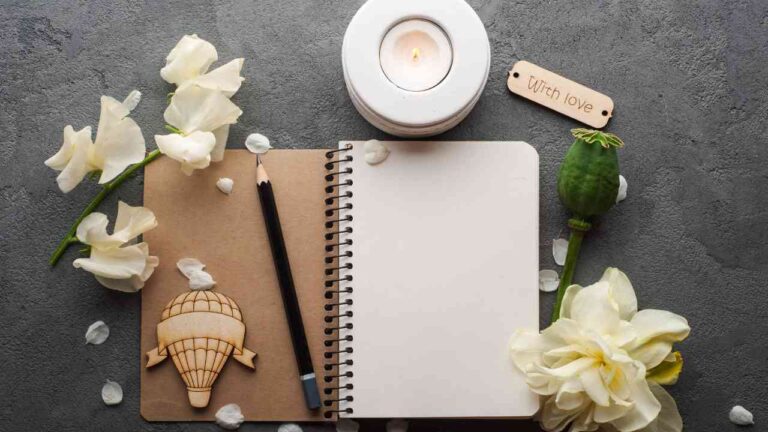Key Takeaways
- Self care for introverts to recognize and honor your need for solitude.
- Establish daily rituals to create structure.
- Engage in mindfulness practices to center yourself.
- Limit exposure to overstimulating environments.
- Set clear boundaries to protect your energy.
- Pursue creative outlets for self-expression.
- Cultivate deep, meaningful relationships.
Introduction: Finding Solace in Solitude
Emma always loved her friends, but social gatherings left her drained. After every party or family event, she would retreat to her room, feeling exhausted instead of happy. She used to think something was wrong with her.
Over time, Emma discovered that she was simply an introvert. Her energy came not from crowds, but from calm, quiet moments. She began carving out time each day just for herself—reading, journaling, or walking in nature. Slowly, those small habits brought big change.
Her stress faded, her mind felt clearer, and her days became more peaceful. Now, Emma thrives by protecting her solitude. Like her, you too can feel recharged and fulfilled by embracing self care for introverts.
Understanding Introversion
Introversion isn’t shyness—it’s a natural way of responding to the world. Introverts feel most alive in calm, quiet spaces where they can think deeply and reflect. Crowded rooms, constant conversation, or loud environments can quickly drain their energy.
Instead of feeling energized by socializing, they recharge by spending time alone. This isn’t a weakness—it’s simply how their minds and bodies work best. When introverts understand this about themselves, they begin to make choices that support their mental and emotional health.
1. Embrace Daily Rituals
Why Routines Matter for Introverts
Introverts feel calmer when life is predictable. Routines give a sense of safety and order, especially when the world feels too loud. A daily ritual, even something small like a quiet cup of tea or journaling in the morning, can help start or end the day with peace.
Create a Simple Ritual
You don’t need a complex plan. Start with one small thing each day:
- Morning Journaling – Write 3–5 sentences about how you feel or what you’re grateful for.
- Evening Walks – A 10-minute stroll after dinner can clear your mind.
- Daily Tea or Coffee Break – Sit in a quiet space and enjoy your drink with no screens.
Step-by-Step to Build Your Routine
| Step | Action | Purpose |
| 1 | Pick a quiet time | Morning or night is best |
| 2 | Choose a calming activity | Journaling, stretching, etc. |
| 3 | Repeat it daily for 7 days | Builds habit and comfort |
| 4 | Adjust to fit your lifestyle | Make it flexible, not rigid |
“When introverts are maxed out, it’s almost impossible for them to attend to other people’s needs. That’s where rituals come in.” — BuySmart Advisor
2. Prioritize Alone Time
Alone Time Isn’t Lonely Time
Introverts don’t just enjoy alone time—they need it. It helps them recharge their mental batteries. Without it, stress builds fast, and even small tasks can feel overwhelming.
How to Make Time for Yourself
Even on busy days, you can plan short pockets of alone time. Start small—10 minutes a day. Use it for something that relaxes you:
- Reading a book
- Doing puzzles
- Sketching or coloring
- Listening to calm music
Schedule It Like an Appointment
| Time of Day | Ideal Solo Activity |
| Early Morning | Journaling or quiet coffee |
| Lunch Break | Short walk or music break |
| Evening | Read a chapter or meditate |
Tip: Tell your family or roommates, “This is my recharge time.” Most people will respect your need once they understand it.
3. Engage in Mindful Activities
What Is Mindfulness for Introverts?
Mindfulness means paying attention to what you’re doing—without judgment. It helps calm racing thoughts and supports emotional balance.
Easy Activities to Start
- Deep Breathing: Breathe in for 4 seconds, hold for 4, out for 4.
- Meditation: Use free apps like Insight Timer or Headspace.
- Gentle Yoga: Try 10-minute videos from YouTube or Yoga With Adriene.
Benefits of Mindful Activities
| Activity | Benefit |
| Breathing | Lowers heart rate and stress |
| Meditation | Boosts focus and calm |
| Yoga | Eases body tension and anxiety |
Steps to Begin
- Pick a quiet space
- Sit or lie down comfortably
- Close your eyes
- Follow your breath or a calming sound
- Start with just 5 minutes daily
“Almost everything will work again if you unplug it for a few minutes… including you.” — Anne Lamott
4. Limit Overstimulation
Sensory Overload is Real
Introverts often feel overwhelmed in noisy, bright, or busy places. This isn’t weakness—it’s sensitivity to too much input.
Build a Calm Environment
Make your home or room your peaceful zone. Focus on soothing colors, soft lighting, and quiet sounds. Avoid multitasking.
Ways to Reduce Noise and Light
| Overstimulation Source | Solution |
| Loud TV or music | Use headphones or turn volume down |
| Bright lights | Use warm lamps instead of ceiling lights |
| Crowded spaces | Visit stores early or late |
Step-by-Step for Peaceful Spaces
- Identify what overwhelms you
- Remove or reduce that element
- Replace with something calming
- Repeat whenever overstimulation hits
“Quiet is peace. Tranquility. Quiet is turning down the volume on life.” — Khaled Hosseini
5. Set Boundaries
Boundaries Help You Stay Strong
Saying “no” doesn’t make you rude—it makes you healthy. Without limits, introverts burn out quickly. Protecting your energy is a key form of self-care.
When to Say “No”
If an invite makes you feel tired just thinking about it, you can skip it. Try saying:
- “Thanks, but I need a quiet night tonight.”
- “I’d love to, but I have to take care of myself.”
Practice Saying No Without Guilt
| Situation | What to Say |
| Friends want to hang out | “I need to rest tonight, but let’s plan later.” |
| Work overload | “I’m at capacity right now. Can we revisit this?” |
| Family pressure | “I love you, but I need alone time right now.” |
Build Your Personal Boundaries List
- Write down situations that drain you
- Note how they make you feel
- Create short, polite ways to say no
“Daring to set boundaries is about having the courage to love ourselves.” — Brené Brown
6. Pursue Creative Outlets
Creativity Feeds the Introvert Soul
Introverts are often deeply creative. Drawing, writing, music, or even crafting can bring joy and expression without needing crowds.
What Counts as a Creative Outlet?
It doesn’t have to be perfect—it just needs to feel good. Try:
- Writing poems or stories
- Playing an instrument
- Painting or doodling
- Photography
- DIY crafts
Easy Creative Projects for Beginners
| Activity | Supplies Needed | Time Needed |
| Sketching | Pencil and notebook | 15 minutes |
| Journaling | Notebook and pen | 10 minutes |
| Watercolor Art | Paints, paper, water | 20 minutes |
Why It Works: Creating something pulls you into the moment. It lowers stress, builds confidence, and gives you a fun way to spend alone time.
“Art enables us to find ourselves and lose ourselves at the same time.” — Thomas Merton
7. Connect Meaningfully
Introverts Still Need People
Alone time is important—but so is connection. Introverts often prefer deep chats with one or two people instead of big groups.
Choose Quality Over Quantity
You don’t need 50 friends. One or two close ones who truly understand you are enough. Make time for them, even if it’s just a short message or a coffee date.
Tips to Build Deep Connections
- Listen actively – Be fully present
- Ask thoughtful questions – Go beyond small talk
- Share from the heart – Be honest, not perfect
- Keep in touch – Send voice notes or texts regularly
Table: One-on-One vs Group Interactions
| Connection Type | Benefits for Introverts |
| One-on-One | Feels safe, allows deep talk |
| Small Groups | Less noise, more focus |
| Large Groups | Can be draining, harder to enjoy |
“Connection is why we’re here; it gives purpose and meaning to our lives.” — Brené Brown
Final Thoughts
Taking care of yourself as an introvert isn’t a luxury—it’s a daily need. The seven quick habits we’ve explored—like building daily rituals, setting boundaries, and spending time alone—can help you feel calm, strong, and in control. Each habit supports your natural rhythm and protects your mental energy. You don’t have to change who you are to feel better.
Instead, lean into what makes you thrive. With small, consistent steps, you’ll notice more peace, less stress, and deeper joy in your everyday life. At BuySmart, our goal is to guide you with expert-backed habits that work in real life—so you can live fully, recharge often, and grow confidently, one quiet moment at a time.







